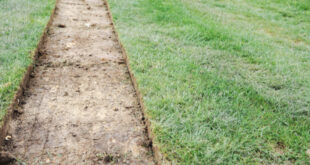Nearly $18 million in grants has been allocated by the Governing Board of the San Francisco Bay Restoration Authority, the local agency responsible for allocating funding raised by Measure AA, for wetlands restoration projects in the Bay area. The recently announced grants are the first round of Measure AA grants, and go eight restoration projects throughout the region.
“We are very excited to put some serious funding behind these projects and future rounds,” said Sam Schuchat, the Restoration Authority’s executive officer. “A healthy San Francisco Bay needs at least 100,000 acres of tidal wetlands to maintain our ecological diversity and adapt to climate change, but at present there are only 44,000 acres. Our changing climate is already impacting California and we must accelerate this restoration work now.”
The newly funded projects represent a diverse group of restoration projects and include:
| Project | Grantee | Grant Amount |
| South Bay Salt Ponds Restoration Project, Phase 2 | Ducks Unlimited, Inc. & California Wildlife Foundation | $7,421,730 |
| South San Francisco Bay Shoreline Project for Economic Impact Area 11 | Santa Clara Valley Water District (District) | $4,439,406 |
| Restoring wetland-upland transition zone habitat in the North Bay with STRAW | Point Blue Conservation Science | $2,661,264 |
| Montezuma Tidal and Seasonal Wetlands Restoration Project – Phase I Tidal Wetlands Area | Montezuma Wetlands LLC (MWLLC) | $1,610,000 |
| Deer Island Basin Phase I Tidal Wetlands Restoration Project | Marin County Flood Control District | $630,000 |
| San Leandro Treatment Wetland for Pollution Reduction, Habitat Enhancement and Shoreline Resiliency | City of San Leandro | $539,000 |
| Encinal Dune Restoration and Public Access | East Bay Regional Park District | $450,000 |
| Restoration Strategy for Lower Sonoma Creek | Sonoma Land Trust | $150,000 |
Measure AA was passed in June 2016 by 70 percent of voters in the nine Bay Area counties. Also known as the San Francisco Bay Clean Water, Pollution Prevention and Habitat Restoration Measure, the $12 parcel tax is expected to raise $500 million over twenty years, or some $25 million annually, to fund shoreline restoration.
“We are so grateful to Bay Area voters, who cherish the Bay and voted to tax themselves to protect and restore it,” said San Mateo County Supervisor Dave Pine, Chair of the Governing Board for the Restoration Authority. “This is the start of a new era for Bay restoration. For the first time, we have a reliable source of substantial year-on-year funding, which will allow for the long-term planning and implementation that is necessary for large-scale restoration. And large-scale restoration is what we need to restore our Bay in the face of climate change.”
In addition to the primary aim of restoring habitat and natural processes, the eight newly funded agency projects will provide multiple other benefits and help prioritize nature-based solutions to create flood protection and public access. Additionally, a ninth grant of $4,998,600 to the San Francisco Recreation and Park Department for remediation at 900 Innes, will be recommended to the San Francisco Bay Restoration Authority Governing Board at a subsequent meeting.
The Restoration Authority was created by the California Legislature in 2008 and charge with the responsibility to find solutions to the need for new, local funding, due to reduced funding from other sources. The Restoration Authority is a regional agency with a Governing Board made up of local elected officials. Its purpose is to raise and allocate local resources for the restoration, enhancement, protection, and enjoyment of wetlands and wildlife habitat in San Francisco Bay and along its shoreline, and associated flood management and public access infrastructure.
For additional information on the grantees and their projects go to: http://sfbayrestore.org/packets/2018-04-11/Agenda.htm.
 California Water News Daily Your Source For Water News in California
California Water News Daily Your Source For Water News in California


